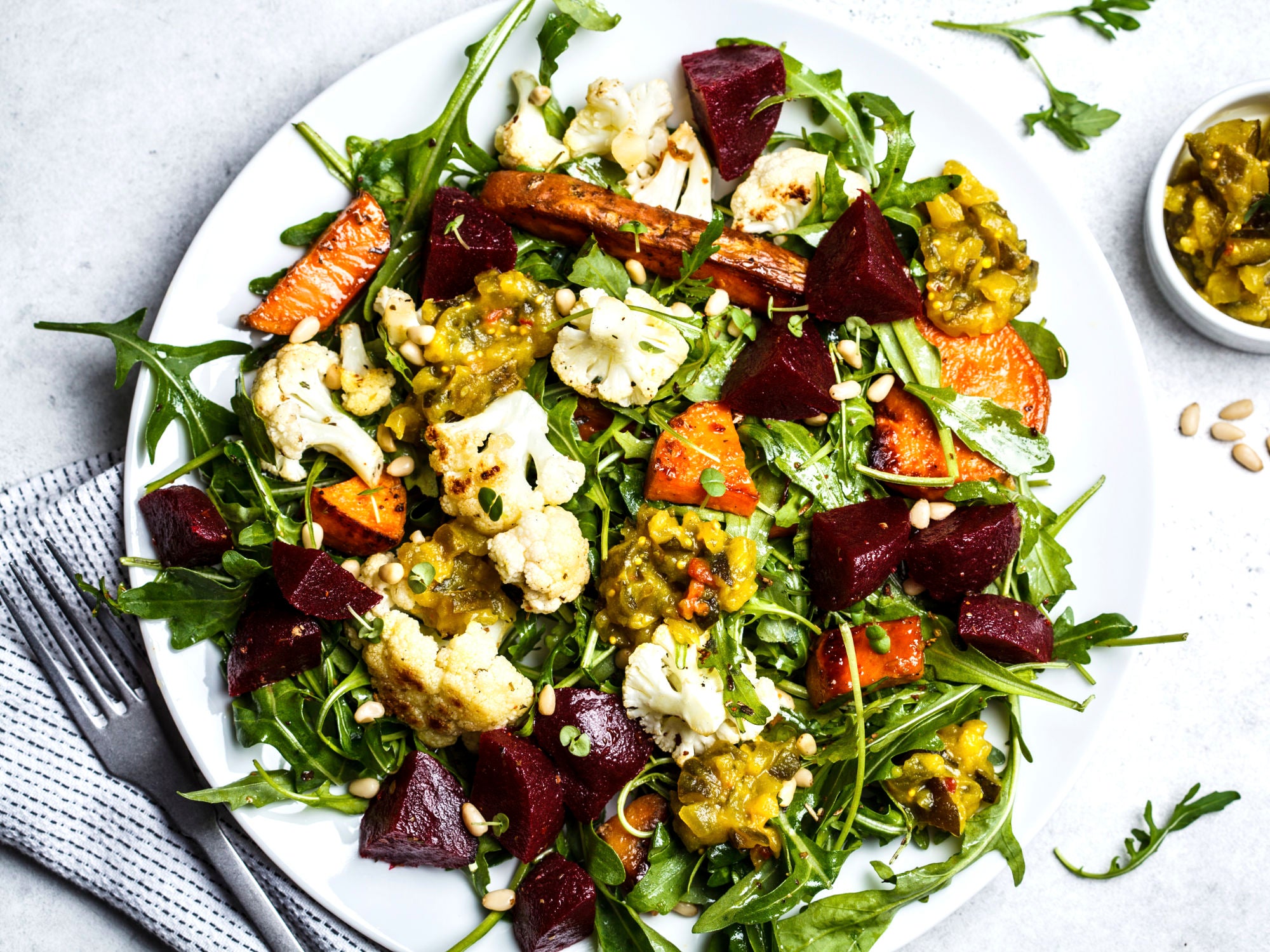Your basket is empty
Already have an account? Log in to check out faster.
Already have an account? Log in to check out faster.

One of the latest food trends, still not as well known in Italy as overseas, is the Plant-Based diet: but what is it? First of all, calling it a trend is very reductive: of course, there are several celebrities who claim to apply the principles of plant-based thought, but it is much more than a trend.
The plant-based diet is a true approach to life, starting from nutrition: respect for one's health and one's organism, first and foremost, which is reflected in respect for all forms of life and for the Planet in general.
The name itself says a lot “plant-based” means, literally translated, based on plants, therefore a diet predominantly vegetal, but not only. In fact, it is not just a question of consuming vegetables but of consuming natural foods: not industrially processed, untreated, not deriving from the exploitation of resources and animals, preferably zero km.
The ethical component joins the strong healthy desire: preferably cruelty-free, the foods must above all be unprocessed, fresh, healthy, balanced, light, rich in essential nutrients... it is a plant-based but not vegan/vegetarian diet, which places emphasis on the quality and healthiness of foods rather than on their "moral" value, while paying great attention to sustainability.
The vegan diet envisages a diet totally based on foods of plant origin: nothing of animal origin is allowed, either directly or indirectly, nor other products - clothing or accessories - that involve the exploitation of animals.
No eggs or milk or honey or leather, so to speak, and not only that: in its most rigorous meanings, veganism does not even include the use of yeasts, as the bacteria that compose them are unquestionably living beings.
A vegan diet can be balanced if the person leading it knows the foods and their combinations well, the necessary supplements and the reaction of their body to the lack of certain foods.
On the contrary, the Plant-Based diet is on the one hand more relaxed, on the other more stringent.
More relaxed because it is plant-based, but not exclusively plant-based: products of animal origin are allowed, in moderate quantities, but on only one condition, that is, the excellent quality of the food itself and its certified origin. For example, eggs can be consumed occasionally but only if very fresh, possibly at zero km, from free-range farms where the hens are not exploited but can live in the open air without constraints.
It is also a philosophy that is in a certain sense more stringent than veganism for this very reason: as long as it is 100% vegetable, the vegans also consume highly processed foods, such as industrial chips. On the contrary, those who follow the plant-based diet would never allow highly refined foods of this type.
Great attention to the quality and nutritional values of foods: no to refined sugars and hydrogenated fats, for example, no to synthetic dyes and sweeteners, no to everything that mother nature could not produce spontaneously.
But what can you eat, then, if you undertake the plant-based diet?
Green light to whole grain cereals and flours, extra virgin oil olive oil, seasonal fruit and vegetables: these foods are the basis of every meal. desserts can only be consumed if homemade and with controlled, simple and unrefined raw materials, preferably of vegetable origin - for example by replacing milk with soy or rice drinks, and eggs with other natural thickeners such as flax seeds, psyllium husks or simple ripe banana. Yes to dried fruit and seeds.
Meat and fish? Small quantities can be consumed sporadically, as long as they respect the main rule, i.e. natural and controlled origin.
A big no to everything ready-made and processed: ready-made sauces, chips, biscuits, snacks of various kinds, sugary cereals, spreads, snacks and many other notoriously unhealthy foods. Junk food and fast food are therefore absolutely banned!
Eating mainly fresh, seasonal fruit and vegetables, cooked simply without excess seasonings, combined with cereals and unrefined flours, little sugar, lots of water: it seems like the recipe for perfect health.
Obviously it must be studied with a professional but, if well structured and programmed, it is a diet that can give great benefits in terms of weight loss, cardiovascular health, problems related to diabetes, hypertension and inflammation.
In fact, you fill up on micronutrients: mineral salts, such as calcium, iron, magnesium, potassium and zinc, and vitamins such as A, C, E and folic acid, but also ofplant sterolswhich fight cholesterol and fibre, which helps intestinal health. In plants we also find some truly marvelousantioxidants, such as polyphenols, anthocyanins and carotenoids, for example the lycopene contained in tomatoes, precious for their natural anti-inflammatory properties.
To undertake this journey you need to be a attentive consumers: if you are used to shopping with only special offers and refined foods loaded with fats and sugars in your cart... it will be difficult to take this step, but not impossible.
You need to learn to read product labels, both in terms of ingredients and their origin and processing. Only by really knowing what you put on the table – such asorigin and nutritional values– can you understand whether it is suitable for this diet.
And not only that: consuming fresh foods means following seasonality. Pumpkin is eaten in October, watermelon in July, it cannot be otherwise: expecting to eat strawberries in December and chestnuts in June creates the need to force nature's hand, with intensive cultivation in greenhouses and manufacturing processes to preserve food beyond the correct season.
This attention to following the rhythm of nature, avoiding industrial forcing, is good for the environment, although the plant-based is more focused on health than on the purely ethical choice of veganism.
For more information on the Plant-Based diet, we leave you a article by Harvard Medical School and one of the Ansa Italian.
0 comments